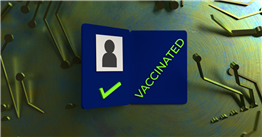We need dumb technology that does as little as possible and knows as little about us as possible.
By Shira Ovide
This article is part of the On Tech newsletter. You can sign up here to receive it weekdays.
I have been reluctant to write about whether and how Americans might provide proof of vaccination against the coronavirus. It’s a political, cultural, ethical and legal minefield. Technology is not the point at all.
But if some workplaces, schools, public gathering spots and travel companies start requiring a “vaccine passport,” it makes sense for them to do so in ways that preserve people’s privacy, are simple to use, win people’s trust and don’t cost a fortune.
Let me tell you about an intriguing proposal from PathCheck Foundation, a health technology nonprofit. The central premise is that technology related to our health should be as minimal as possible. That philosophy should be our North Star.
Here is one problem with some early technology approaches to digital vaccine credential systems: They create too many middlemen that tap into your health records, said Ramesh Raskar, an associate professor at the M.I.T. Media Lab who also founded PathCheck.
In the United States, states are mostly the ones maintaining records of which residents are vaccinated. Early efforts to create vaccine credentials, like the Excelsior Pass in New York, essentially create a replica of those state databases with information including your name, date of birth, address, the batch numbers of your shots and so on. And that’s what businesses and others access when they check whether people walking in the door are vaccinated, Dr. Raskar said.
When you add multiple layers of technology into any system, it increases the possibility of your sensitive data leaking out. It’s also expensive and complicated for everyone involved. “It’s completely unnecessary,” Dr. Raskar told me.
Source: Read Full Article


